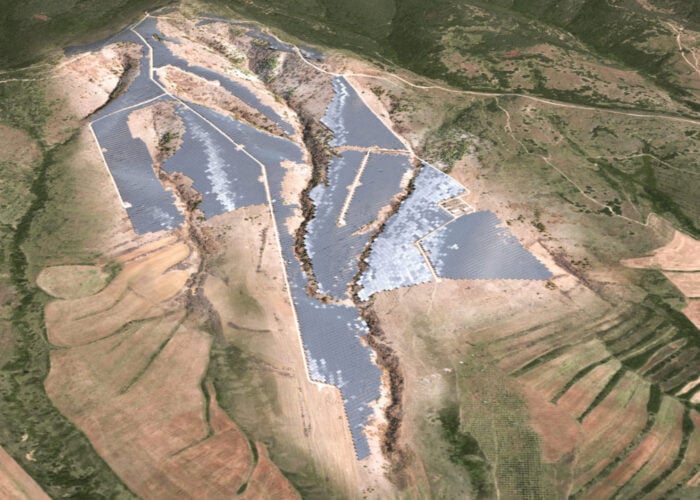Minnesota’s Public Utilities Commission (PUC) last month ruled distributed solar energy project, Aurora, as more economic than competing natural gas projects. The PUC decided solar is the preferred method of generation for meeting the forecasted energy demand of state utility, Xcel Energy.
Following the landmark decision, there were claims the decision process was unfair, that favouritism was rife and confusion over subsidies reigned. PV Tech spoke to Betsy Engelking, vice president of the winning solar developer, Geronimo.
Unlock unlimited access for 12 whole months of distinctive global analysis
Photovoltaics International is now included.
- Regular insight and analysis of the industry’s biggest developments
- In-depth interviews with the industry’s leading figures
- Unlimited digital access to the PV Tech Power journal catalogue
- Unlimited digital access to the Photovoltaics International journal catalogue
- Access to more than 1,000 technical papers
- Discounts on Solar Media’s portfolio of events, in-person and virtual
PV Tech: What does this decision mean for the solar industry?
Betsy Engelking: This is a very important decision for the solar industry – it affirms that solar energy can play a cost-effective role in meeting electric utilities' capacity and energy needs.
With recent cost reductions and clear environmental advantages, solar energy is becoming a popular choice for state policy makers when they consider what they want their ‘electric system of the future’ to look like.
This project will help demonstrate that solar can be effectively integrated into a utility portfolio and help meet its reliability needs.
PV Tech: What would you say to allegations the decision was unfair?
BE: The Commission was following Minnesota law, which expresses a clear preference for renewable energy and non carbon-emitting resources. In order to approve a non-renewable resource and reject our proposal, the Commission would have had to make a clear finding that our project was not in the public interest. They did not believe that the record supported such a finding, and appropriately included us as one of the resources to be implemented in this process.
PV Tech: Did you expect the decision to be in favour of Geronimo?
BE: The administrative law judge recommended Geronimo, so that's always a good position to be in going in to the Commission. But the Commission carefully considered all the facts and came to their own conclusion that our project was in the public interest. They didn't just rubber stamp the ALJ. We appreciate all of the thought they put into this case.
PV Tech: How have state policies benefited solar energy in deployment in Minnesota?
BE: One of the reasons this decision happened is because the state of Minnesota has put so many great policies in place to support the development of clean energy and the reduction of greenhouse gasses and other pollutants that can result from electric generation. Many folks have worked tirelessly over the last two decades to put these policies in place, and we appreciate the support of groups like Fresh Energy, the Izaak Walton League, Minnesota Center for Energy and Environment (MnCEE) and the Minnesota Center for Environmental Advocacy for all of their work on these policies, and their support in this case.
PV Tech: The Geronimo solar project has been praised for it’s independence from state subsidies, but what about the 30% federal solar tax credit it will receive if completed by 2016?
BE: The 30% tax credit is one of the features that allowed us to offer an attractive price to Xcel Energy. Other factors include the economies of scale and the recent drop in both panel prices and soft costs. Solar can be installed fairly quickly and we expect to have no issues with having the project online by the end of 2016.
PV Tech: How will this help utilities to value solar energy in the future?
BE: All solar energy is not alike, and different types offer different benefits. The Aurora project is a large-scale distributed project – so it helps utilities see the advantages of economies of scale and once operating, it should give them an idea of the cost and reliability benefits of locating generation closer to load. Utilities are getting more information on how the different types of solar operate on their system, and that will give them the chance to decide which designs and other attributes they'd like to see in their portfolios.
PV Tech: How might this change public opinion of solar energy in Minnesota and the US?
BE: Solar energy is already very popular in the US – more and more homes and businesses are looking for the opportunity to install solar on their buildings or participate in other ways. The key to this decision is that it allows us to start thinking bigger where solar is concerned – not in project size – but in the significance solar will actually have on the electric resource mix. It's going to play a large role in the future.
PV Tech: Do you think solar will continue competing in all-energy competitions in the near future?
BE: Solar is competing with other energy sources now, whether it's a customer who decides to put solar panels on his roof or a large-scale project going up against natural gas fired or other conventional resources. As costs some down, solar will be more and more competitive and you'll see more results like this case.
PV Tech contacted competing bidder Invenergy but they declined to contribute to an article.







